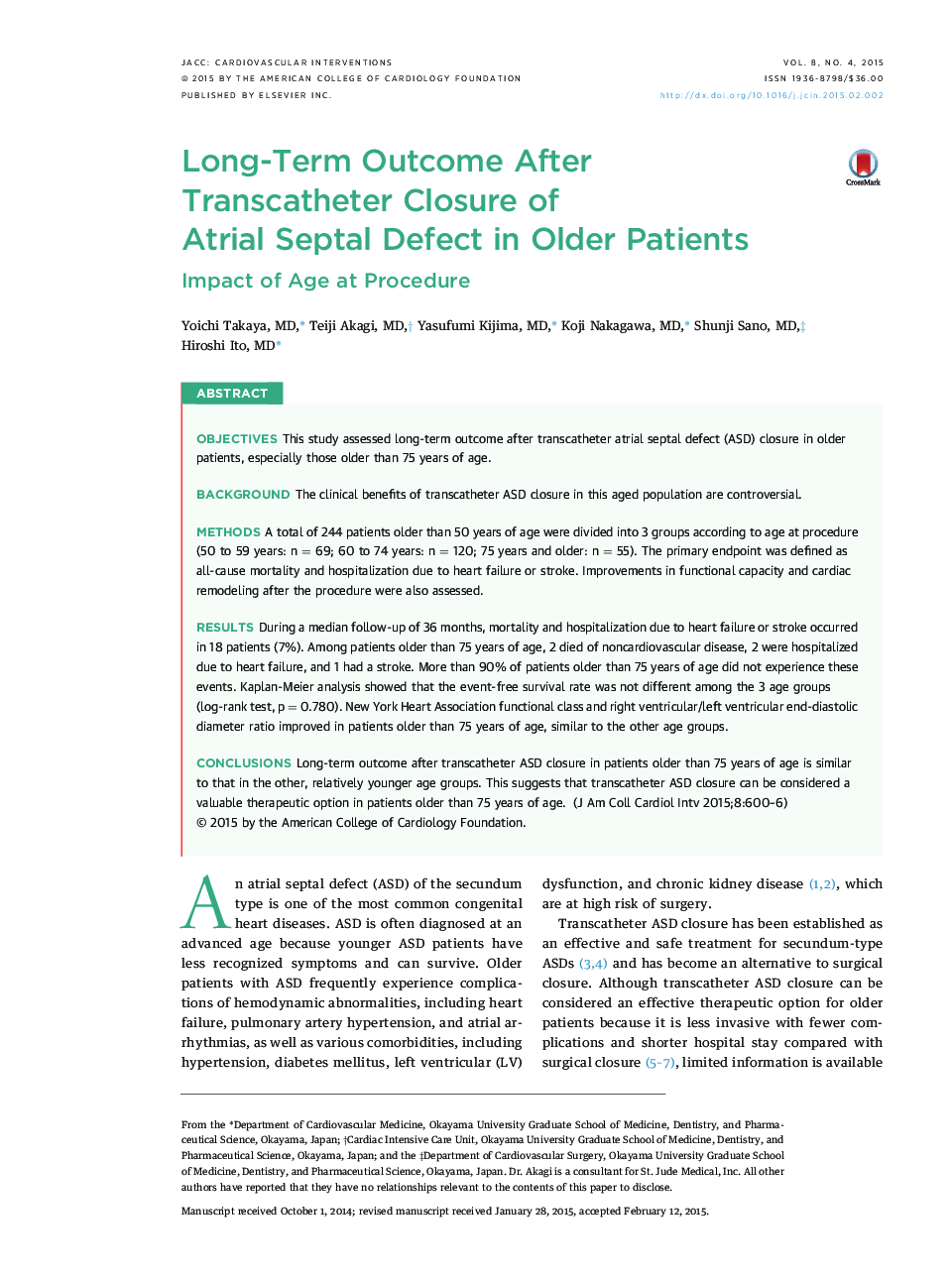| Article ID | Journal | Published Year | Pages | File Type |
|---|---|---|---|---|
| 2939755 | JACC: Cardiovascular Interventions | 2015 | 7 Pages |
ObjectivesThis study assessed long-term outcome after transcatheter atrial septal defect (ASD) closure in older patients, especially those older than 75 years of age.BackgroundThe clinical benefits of transcatheter ASD closure in this aged population are controversial.MethodsA total of 244 patients older than 50 years of age were divided into 3 groups according to age at procedure (50 to 59 years: n = 69; 60 to 74 years: n = 120; 75 years and older: n = 55). The primary endpoint was defined as all-cause mortality and hospitalization due to heart failure or stroke. Improvements in functional capacity and cardiac remodeling after the procedure were also assessed.ResultsDuring a median follow-up of 36 months, mortality and hospitalization due to heart failure or stroke occurred in 18 patients (7%). Among patients older than 75 years of age, 2 died of noncardiovascular disease, 2 were hospitalized due to heart failure, and 1 had a stroke. More than 90% of patients older than 75 years of age did not experience these events. Kaplan-Meier analysis showed that the event-free survival rate was not different among the 3 age groups (log-rank test, p = 0.780). New York Heart Association functional class and right ventricular/left ventricular end-diastolic diameter ratio improved in patients older than 75 years of age, similar to the other age groups.ConclusionsLong-term outcome after transcatheter ASD closure in patients older than 75 years of age is similar to that in the other, relatively younger age groups. This suggests that transcatheter ASD closure can be considered a valuable therapeutic option in patients older than 75 years of age.
